Information democracy
Powerful companies and governments control the way the internet and new technologies are deployed. These actors blur the lines on corporate power in ways that have tremendous impact on people and democracies. The dominant business model of ‘Big tech’ platforms is based on surveillance, polarization and power imbalances. This ‘surveillance capitalism’ has had a global impact on democracy. For example, state and private actors can use the internet and technologies to spread political disinformation, to manipulate electoral results, to attack human rights defenders and to limit civic space.
Filter resources
-
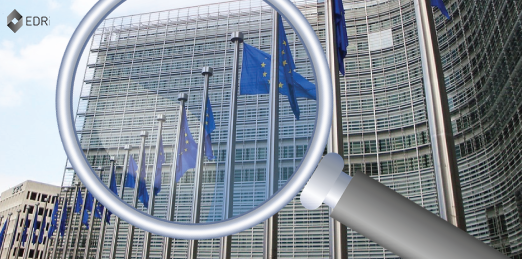
ENDitorial: The Commission’s new filtering adventure
In September 2017, the European Commission adopted a “Communication” on illegal content online, full of demands that somebody – but not them and not the Member States – should do something to fight illegal content online. With this move, the European Commission managed to generate some good publicity for itself.
Read more
-

German police raids privacy group’s premises
In the early morning of 20 June 2018, German police forces raided several locations – the headquarters of the privacy group Zwiebelfreunde, and the homes of three of its board members, as well as the association OpenLab, which is part of EDRi member Chaos Computer Club (CCC) in Augsburg.
Read more
-
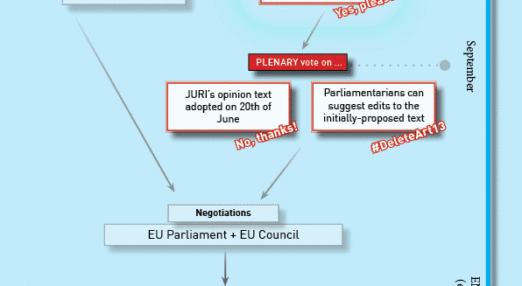
Press Release: EU Parliamentarians support an open, democratic debate on Copyright Directive
EU Parliamentarians decided today, 5 July 2018, that the initial text proposed as the Copyright Directive Reform needs to be re-opened for edits. This will allow the 751 MEPs to propose amendments in September and call for the deletion of the notorious Article 13.
Read more
-

How the EU copyright proposal will hurt the web and Wikipedia
Wikimedia is an integral part of a large movement of civil society stakeholders, technologists, creators, and human rights defenders, who all recognize the importance of a free and open web for culture, progress, and democracy. Our movement is working to promote freedom online for the benefit of all. Our efforts in this public policy realm […]
Read more
-
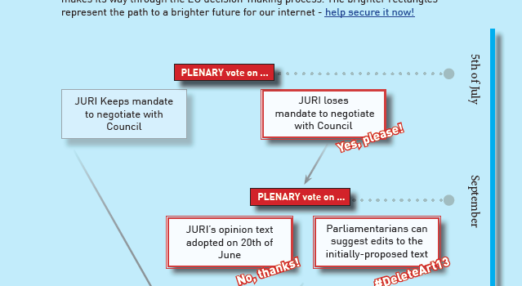
Action plan against the first obligatory EU internet filter
Many feared (and some hoped) that the European Parliament’s JURI Committee vote on the 20th of June would be the end of our campaign, as well as the end of the open internet. Not so fast, the censorship machine is not a done deal!
Read more
-
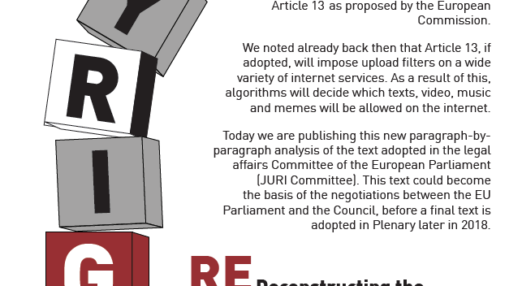
Re-Deconstructing upload filters proposal in the copyright Directive
This week we have published a new analysis of the proposal for upload filters in the Copyright Directive proposal. The paper is a new paragraph-by-paragraph analysis of relevant parts in the text adopted by the Legal Affairs Committee of the European Parliament (JURI Committee). The work complements our first analysis of the initial proposal by […]
Read more
-
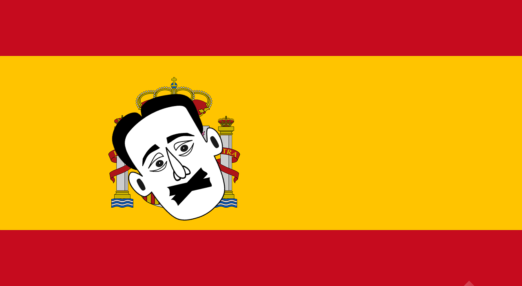
Restoring freedom of expression in Spain: end the “gag law”
Spain has been one of the countries of the European Union that has most shamefully stood out for its government’s attitude against freedom of expression and information.
Read more
-
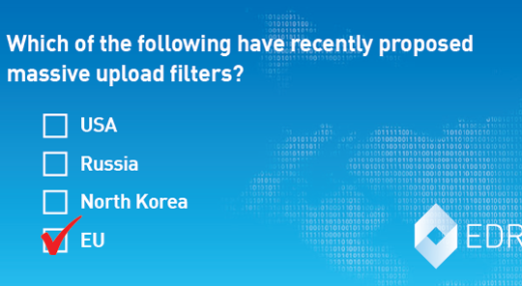
Moving Parliament’s copyright discussions into the public domain
With just eleven months to go before the 2019 European elections, European citizens’ reactions to certain aspects of the Copyright Directive mean that there is more interest than ever in what decisions are being made by the European Parliament, as well as how these decisions are made.
Read more
-
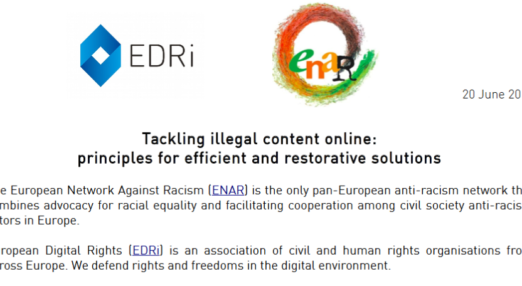
Position Paper: ENAR and EDRi join forces for diligent and restorative solutions to illegal content online
The European Network Against Racism (ENAR) and European Digital Rights (EDRi) joined forces to draw up some core principles in the fight against illegal content online. Our position paper springs both from the perspective of victims of racism and that of free speech and privacy protection.
Read more
-
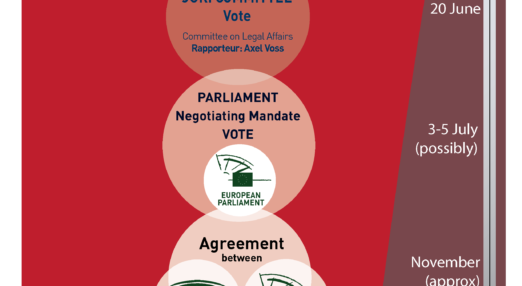
We can still win: Next steps for the Copyright Directive
On the 20th of June 2018, the European Parliament’s Legal Affairs Committee (JURI) ignored all advice and voted for the chaotic Article 13 of the proposed Copyright Directive. There are several steps for the EU institutions to go through before the Directive can finally be adopted. We can still win!
Read more
-
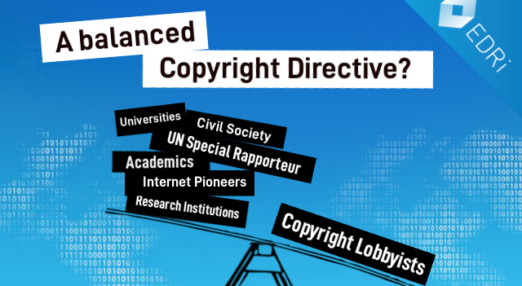
Press release: MEPs ignore expert advice and vote for mass internet censorship
In a vote today, 20 June 2018, the Legal Affairs Committee of the European Parliament voted for a Copyright Directive, which includes measures to monitor and filter virtually all uploads to the internet.
Read more
-
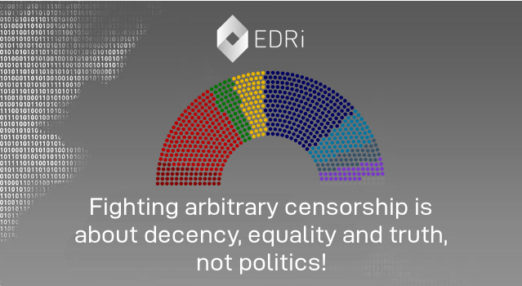
Censorship – don’t look left or right. Look ahead, look behind!
There is discussion about arbitrary censorship of our freedom of expression in every possible policy area these days.
Read more
